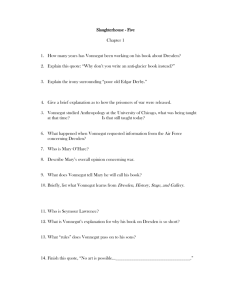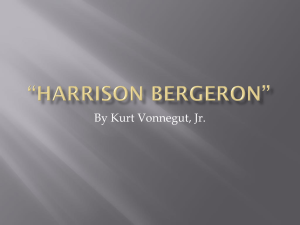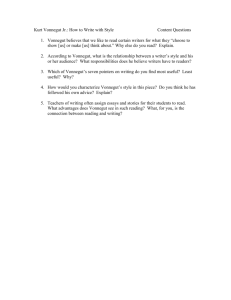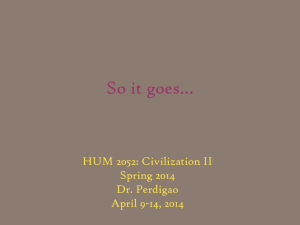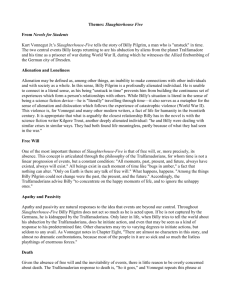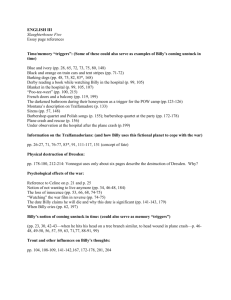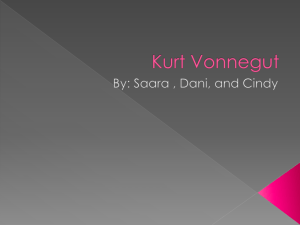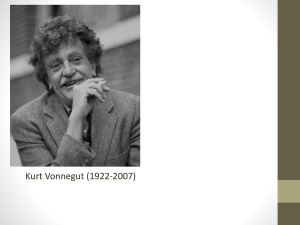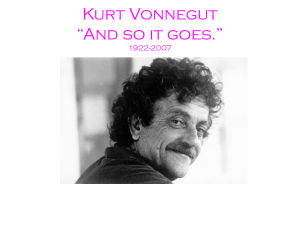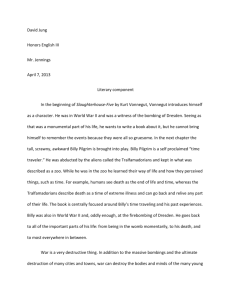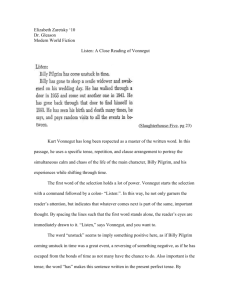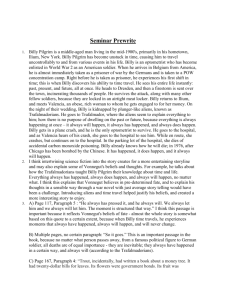SH5 Chapters 1-4 - English 10 Honors
advertisement
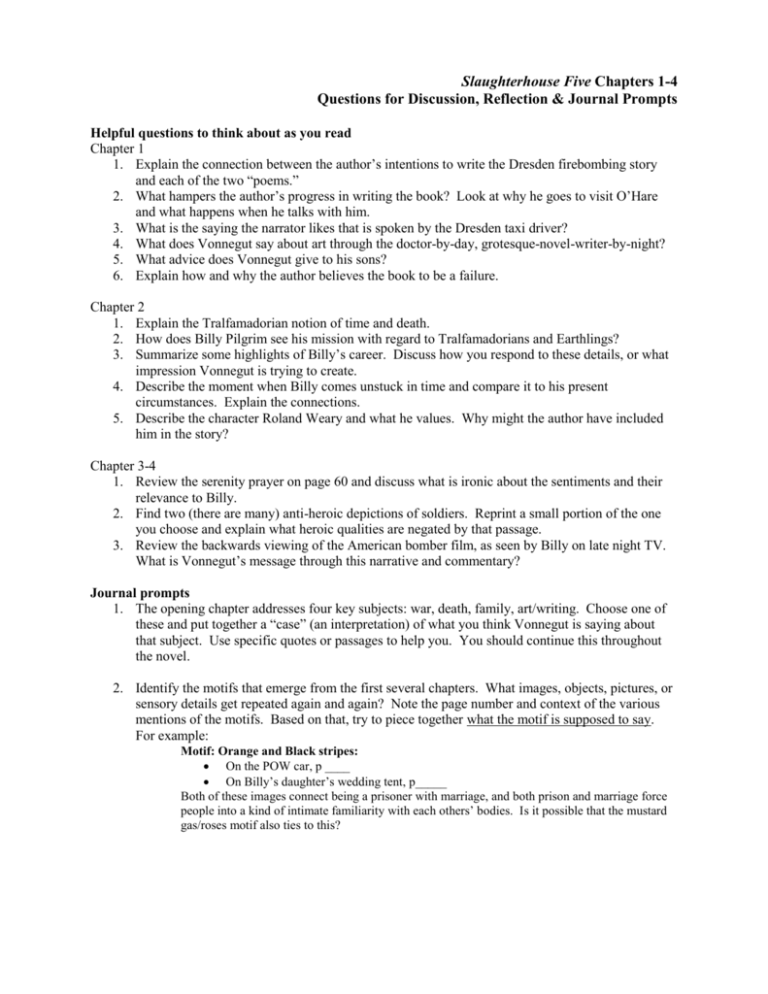
Slaughterhouse Five Chapters 1-4 Questions for Discussion, Reflection & Journal Prompts Helpful questions to think about as you read Chapter 1 1. Explain the connection between the author’s intentions to write the Dresden firebombing story and each of the two “poems.” 2. What hampers the author’s progress in writing the book? Look at why he goes to visit O’Hare and what happens when he talks with him. 3. What is the saying the narrator likes that is spoken by the Dresden taxi driver? 4. What does Vonnegut say about art through the doctor-by-day, grotesque-novel-writer-by-night? 5. What advice does Vonnegut give to his sons? 6. Explain how and why the author believes the book to be a failure. Chapter 2 1. Explain the Tralfamadorian notion of time and death. 2. How does Billy Pilgrim see his mission with regard to Tralfamadorians and Earthlings? 3. Summarize some highlights of Billy’s career. Discuss how you respond to these details, or what impression Vonnegut is trying to create. 4. Describe the moment when Billy comes unstuck in time and compare it to his present circumstances. Explain the connections. 5. Describe the character Roland Weary and what he values. Why might the author have included him in the story? Chapter 3-4 1. Review the serenity prayer on page 60 and discuss what is ironic about the sentiments and their relevance to Billy. 2. Find two (there are many) anti-heroic depictions of soldiers. Reprint a small portion of the one you choose and explain what heroic qualities are negated by that passage. 3. Review the backwards viewing of the American bomber film, as seen by Billy on late night TV. What is Vonnegut’s message through this narrative and commentary? Journal prompts 1. The opening chapter addresses four key subjects: war, death, family, art/writing. Choose one of these and put together a “case” (an interpretation) of what you think Vonnegut is saying about that subject. Use specific quotes or passages to help you. You should continue this throughout the novel. 2. Identify the motifs that emerge from the first several chapters. What images, objects, pictures, or sensory details get repeated again and again? Note the page number and context of the various mentions of the motifs. Based on that, try to piece together what the motif is supposed to say. For example: Motif: Orange and Black stripes: On the POW car, p ____ On Billy’s daughter’s wedding tent, p_____ Both of these images connect being a prisoner with marriage, and both prison and marriage force people into a kind of intimate familiarity with each others’ bodies. Is it possible that the mustard gas/roses motif also ties to this?
